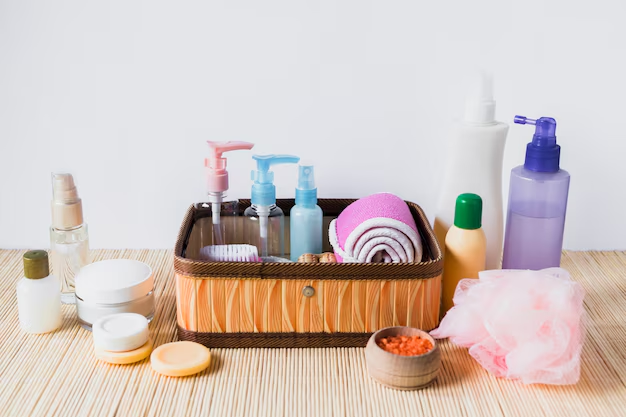Bath Product Manufacturer: A Complete Guide to Quality Bath Product Production

Introduction to Bath Product Manufacturing
The bath product industry has witnessed significant growth due to rising consumer demand for luxury, natural, and sustainable bath products. From bath bombs and body washes to handmade soaps and skincare essentials, a reliable bath product manufacturer plays a crucial role in ensuring quality, safety, and innovation in the market.
Types of Bath Products
Bath products cater to a wide range of personal care needs. The most common products include:
- Bath Bombs: Effervescent balls infused with essential oils, moisturizers, and fragrances.
- Soaps: Available in bar, liquid, and handmade varieties, with ingredients such as shea butter, coconut oil, and natural herbs.
- Body Wash & Shower Gels: Formulated with skin-nourishing ingredients to cleanse and hydrate the skin.
- Bath Salts & Soaks: Mineral-rich formulas designed to soothe muscles and detoxify the skin.
- Bubble Bath & Bath Oils: Luxurious solutions for a relaxing bathing experience.
Key Steps in Bath Product Manufacturing
1. Product Formulation and Ingredient Selection
The foundation of a successful bath product manufacturer is its formulation process. The key considerations include:
- Selection of Natural and Organic Ingredients – Using plant-based oils, botanical extracts, and essential oils for skin-friendly products.
- Avoiding Harmful Chemicals – Excluding parabens, sulfates, and synthetic dyes to cater to sensitive skin.
- Fragrance and Essential Oil Blending – Ensuring long-lasting and soothing scents through expert formulation.
- Custom Formulations – Developing unique product lines tailored to specific customer demands.
2. Sourcing of Raw Materials
A high-quality bath product manufacturer ensures ethical and sustainable sourcing of raw materials. Factors to consider include:
- Organic and Cruelty-Free Certification – Complying with global standards like USDA Organic and Leaping Bunny.
- Sustainable Packaging Solutions – Using biodegradable, recyclable, and eco-friendly packaging.
- Fair Trade Ingredients – Supporting ethical sourcing practices for shea butter, cocoa butter, and essential oils.
3. Production and Manufacturing Processes
The production process varies based on the type of bath products being manufactured. The key processes include:
- Cold Process and Hot Process Soap Making: Traditional techniques that preserve the integrity of natural oils.
- Melt and Pour Method: Ideal for small-scale and customized soap production.
- Batch Mixing for Liquid Soaps and Body Washes: Ensuring consistency and stability in formulations.
- Compression and Molding for Bath Bombs: Using high-pressure techniques to create effervescent bath bombs.
4. Quality Control and Safety Testing
To meet regulatory and consumer standards, manufacturers conduct rigorous quality control measures:
- Microbial and Stability Testing – Ensuring products remain safe and effective over time.
- pH and Dermatological Testing – Creating skin-friendly formulations that are pH-balanced.
- Allergen-Free Certification – Identifying and eliminating common allergens from bath product formulations.
- Batch Consistency Testing – Maintaining uniformity across production runs.
5. Packaging and Labeling
The packaging of bath products plays a crucial role in brand identity and consumer appeal. Key considerations include:
- Eco-Friendly Packaging Options: Using glass, aluminum, and recycled plastic materials.
- Attractive and Informative Labeling: Including ingredient lists, usage instructions, and safety warnings.
- Custom Branding and Private Labeling: Helping businesses create unique bath product lines with distinct branding.
6. Regulatory Compliance and Certifications
A reputable bath product manufacturer adheres to international and local regulatory standards, such as:
- FDA Compliance (USA): Ensuring product safety and labeling requirements.
- EU Cosmetic Regulations (EC 1223/2009): Meeting European safety standards for cosmetic products.
- Good Manufacturing Practices (GMP): Following industry best practices for hygiene and quality control.
- Vegan and Cruelty-Free Certifications: Catering to ethical consumer preferences.
Choosing the Best Bath Product Manufacturer
Selecting the right bath product manufacturer involves evaluating key factors that ensure quality, reliability, and market success.
1. Experience and Expertise
Look for manufacturers with years of expertise in skincare, bath, and beauty product formulation. Check for:
- Past collaborations with reputable brands.
- Innovative formulation capabilities.
- Understanding of market trends and consumer preferences.
2. Customization and Private Labeling Services
Many businesses prefer private label bath products to establish their own brand identity. A good manufacturer should offer:
- Customizable formulas tailored to specific target audiences.
- Unique scents, colors, and textures to differentiate products.
- Branded packaging solutions that align with your company’s image.
3. Sustainable and Ethical Practices
Eco-conscious consumers prioritize brands that align with sustainability values. Ensure that your manufacturer:
- Uses biodegradable packaging and reduces plastic waste.
- Sources ethically harvested ingredients and supports fair trade practices.
- Implements zero-waste production methods to minimize environmental impact.
4. Scalability and Production Capacity
If you’re planning to expand, choose a bath product manufacturer that can scale production efficiently. Consider:
- Small-batch vs. large-scale production capabilities.
- Flexible order quantities for growing brands.
- Fast turnaround times without compromising quality.
5. Cost-Effectiveness and Pricing Transparency
Finding a manufacturer that balances quality and affordability is essential. Look for:
- Competitive pricing without hidden fees.
- Bulk production discounts for larger orders.
- Clear and upfront cost breakdowns for raw materials, labor, and packaging.
Future Trends in Bath Product Manufacturing
1. Growth of Natural and Organic Bath Products
Consumers are increasingly looking for plant-based and non-toxic bath products free from artificial additives.
2. Personalized and Custom Bath Products
Customizable bath products, including personalized scents and skincare benefits, are becoming a major trend.
3. Waterless and Concentrated Formulas
To reduce water consumption and packaging waste, brands are introducing solid body washes, powdered bath soaks, and waterless skincare products.
4. Smart Packaging and Digital Integration
QR codes and smart packaging solutions are being used to provide product traceability, ingredient transparency, and interactive consumer experiences.
Conclusion
Partnering with a reliable bath product manufacturer is essential for creating high-quality, innovative, and market-ready bath products. Whether you’re launching a luxury skincare line, an organic bath essentials brand, or a custom private label collection, the right manufacturing partner ensures your products meet industry standards and consumer expectations.

